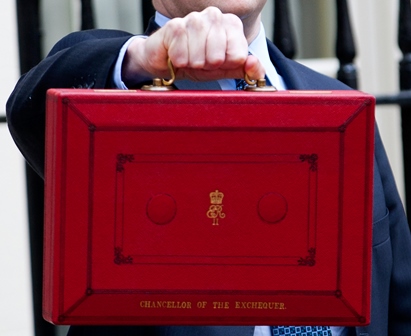The Autumn Budget
With 22 November on the horizon, David Prosser discusses the Chancellor’s upcoming announcement.

Not long to go now until Philip Hammond delivers the autumn budget, prompting the usual round of guessing games about what the Chancellor’s red box might contain. And this time, one corner of the investment company industry will be watching the announcements with particular interest – for venture capital trusts (VCTs), this could be a particularly significant budget.
That’s for two reasons. First, there has been some speculation that the Government is keen to rein back on the generous tax reliefs it offers VCT investors; ministers are in the middle of reviewing the UK’s long-term funding of growing businesses – precisely the constituency in which VCTs invest – and some in the VCT world fear that could spell bad news.
It’s certainly the case that VCTs’ tax status is attractive. Investments in VCTs qualify for 30 per cent upfront tax relief, while capital gains and income earned from the funds are tax-free. However, there is good evidence that taxpayers are getting value for money from financing these tax breaks, without which investors might not be prepared to take the additional risks that VCT investment brings, given that the funds must invest in the smallest and earliest-stage companies. The AIC’s own research has uncovered benefits including the record of companies that have received VCT funding of more than doubling their annual turnover.
The second potential budget announcement with significance for VCTs concerns private pensions; yet again, there is speculation that the Chancellor intends to reduce the amount of tax relief available to investors in private pension plans. If so, that will increase the attractiveness of alternative sources of tax relief, including VCTs.
In fact, the VCT sector has already been a beneficiary of this effect. In recent years, the Government has repeatedly reduced the amount savers may invest in private pensions without incurring tax charges, both annually and over their lifetimes. One effect of this has been that savers have begun to consider a broader range of tax-efficient investment vehicles when thinking about how to make provision for retirement.
Given that the pension rules still allow most people to invest £40,000 a year in a private pension, and to build up lifetime savings of £1m, the changes of recent years have been an issue for wealthier investors rather than all savers. However, these are the investors to whom VCTs are most likely to appeal. As a higher-risk option that requires long-term commitment – not least because the upfront tax relief must be repaid if VCT shares are sold after less than five years – these funds are suited to investors who already have diversified portfolios of other assets and who are prepared to take on additional risk.
It’s possible, of course, that Mr Hammond may choose to clamp down on both pension tax relief and VCT perks, in which case the funds could be a less attractive alternatively. It’s significant that more than 20 VCTs are currently in the market raising money – that may reflect a desire on the sector’s part to get in ahead of any negative budget changes.
However, it would be unfortunate if the Chancellor is hasty. In its current form, the venture capital trust sector is doing an excellent job of serving several different masters: it provides an attractive opportunity to investors, including those seeking to make additional savings for retirement, as the government is urging people to do; it generates important funding for fast-growing companies anxious to scale up, with all the benefits that brings for job creation and economic wealth; and through this latter route, it also increases the long-term tax take for the Treasury.

